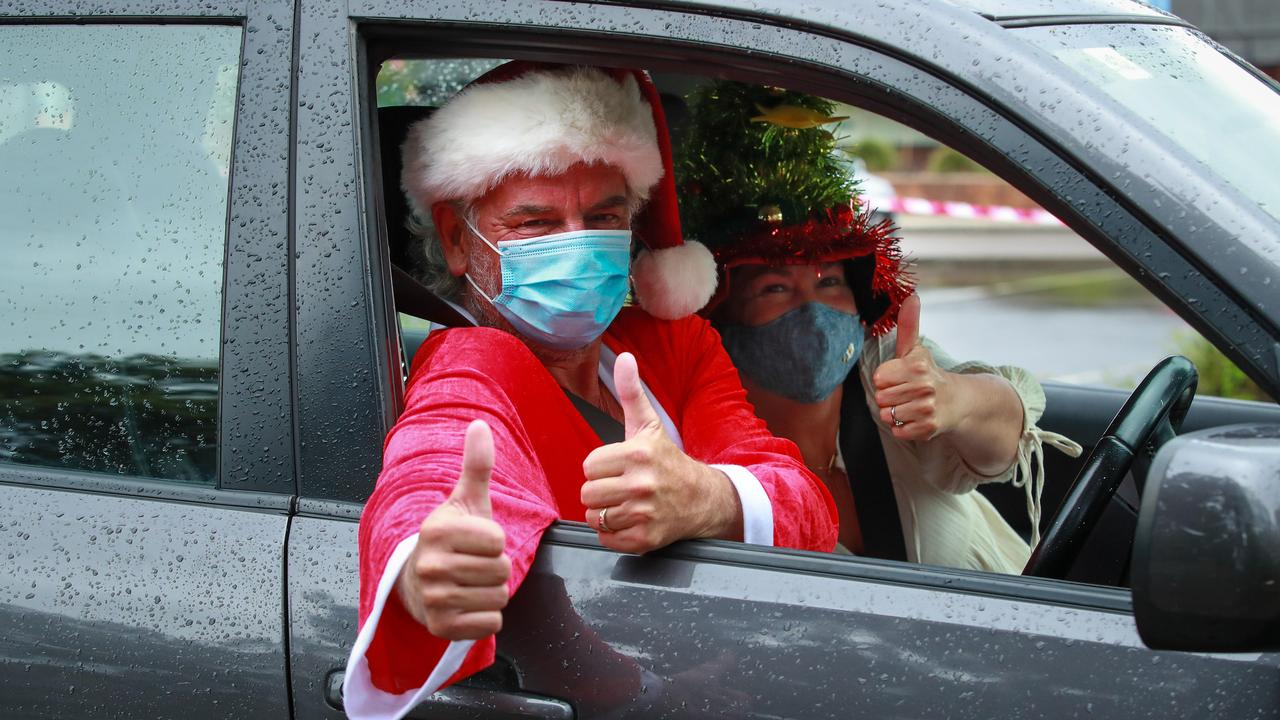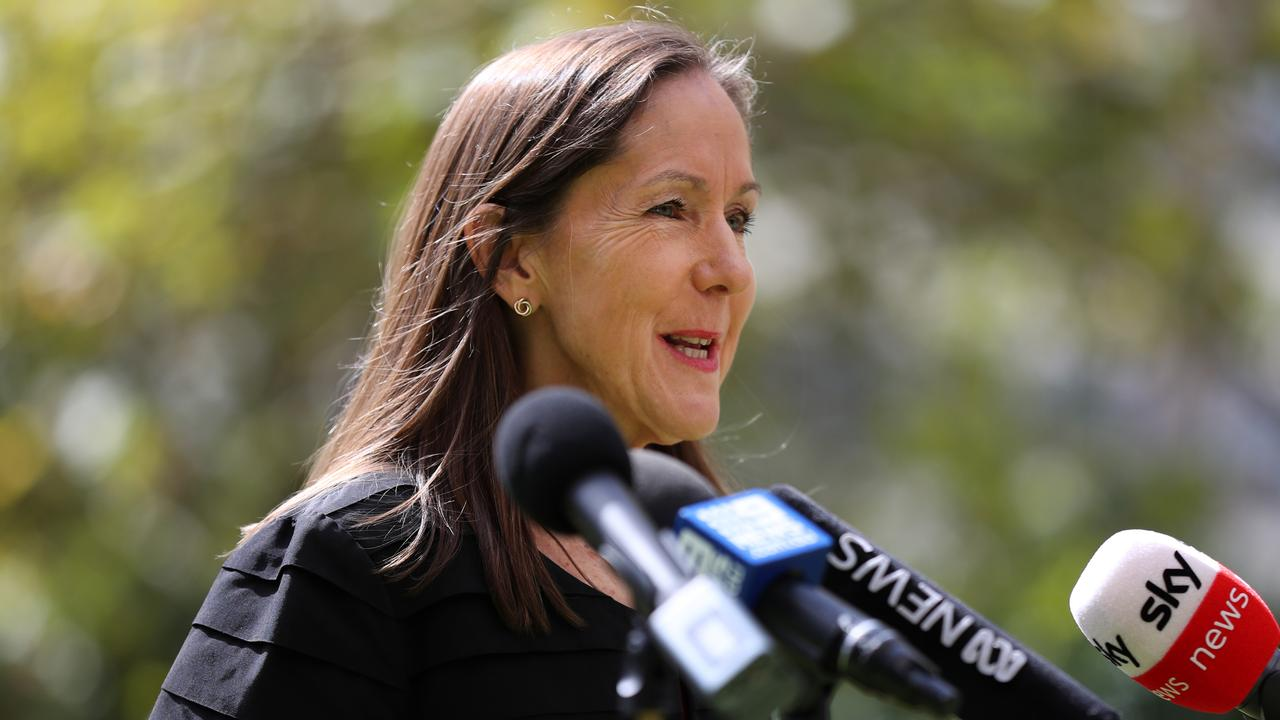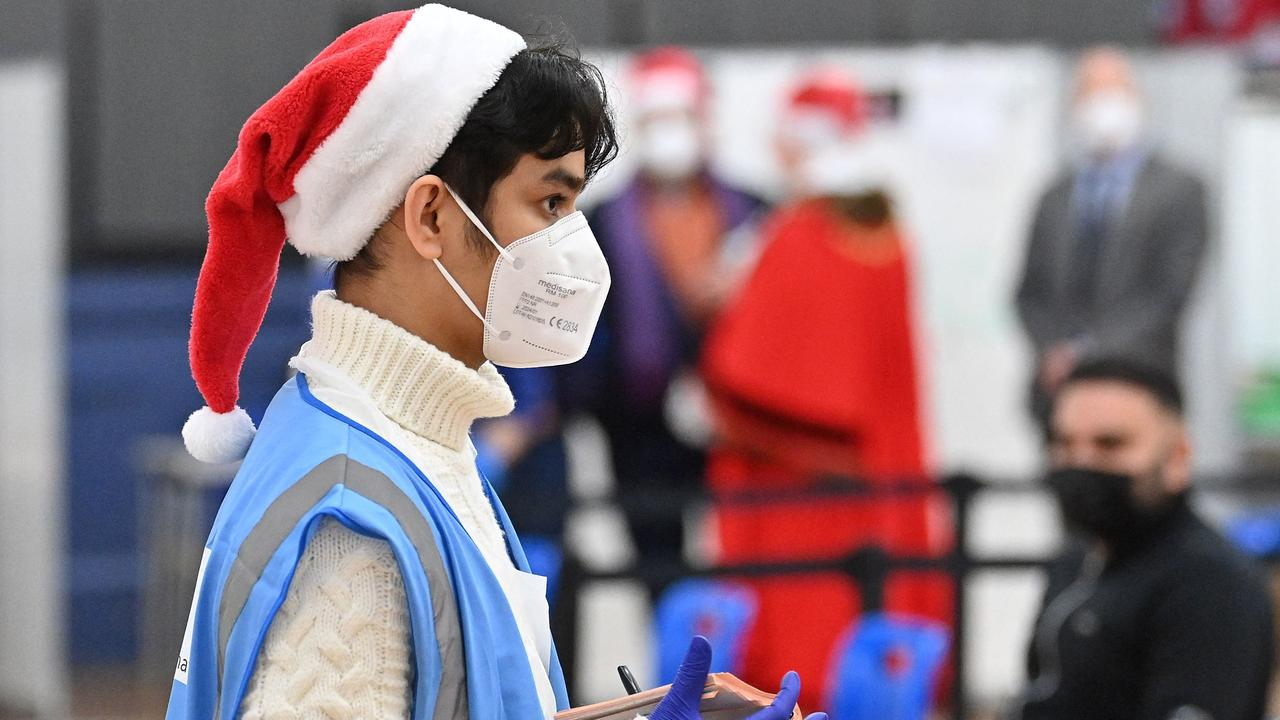Health experts warn Australians may be faced with a third Covid Christmas as eighth wave surges
There are fears Australians could face yet another Covid Christmas as a new wave of the virus makes its way through the community.
New national health data shows the country is in the grips if its eighth Covid wave, with cases souring across the states and territories, and health experts are warning it could peak just in time for Christmas lunch.

Australians may be in for yet another Covid Christmas, if the eighth wave of cases peaks when experts predict. Picture: Justin Lloyd.
There were 6605 new confirmed cases of Covid-19 across the country over the last week, reported on October 27, according to the country’s live Covid tracker.
The most cases were in NSW (1911), followed by Victoria (1407), and South Australia (1069).
Early genome testing suggests the E. 5 variant – known as “Eris”, after the Greek goddess of strife and discord – accounts for about 50 per cent of cases in NSW.
Despite the ominous, and apt, name there is no evidence Eris is more severe or lethal than previous variants.
But NSW Health Director of Communicable Diseases Christine Selvey says early surveillance of cases suggests there is every chance the latest wave could peak at Christmas for “the third year in a row”.
“We had that first Omicron wave that coincided with Christmas and the New Year when it was really, really hectic and again last year around Christmas time, so certainly it could be – we don’t expect it to peak until some time in December,” Dr Selvey told ABC News.

NSW Health NSW Health Director of Communicable Diseases Christine Selvey. Picture: Jonathan Ng
That said, she did say understanding how Covid waves move was getting harder because fewer people were testing for the virus now that mandatory testing rules were scrapped.
“When we had lots of PCR testing and lots of RAT testing and people registering the RATs, we thought we had a pretty good idea of how many people had symptoms with Covid,” she said.
“But we don’t have that level of granularity anymore so it’s a bit hard to compare the waves to each other.”
Despite the rise in cases, Dr Selvey says there is no recommendation for Aussies to mask up just yet.
“We do recommend if people have any symptoms of a respiratory virus they should be staying home in order to protect other people,” she said.
“If they have to go out they should wear a mask”.

Health experts are recommending we be wary of and wear masks if we show symptoms of a respiratory disease. Pictur: Justin Tallis / AFP.
The new warning follows a rise in cases that has come a week after Australia’s Chief Medical Officer Paul Kelly announced Covid-19 would no longer be considered a Communicable Disease Incident of National Significance (CDINS).
And, yet despite the rise in cases, Professor Kelly assured Australians that existing health systems were well-placed to manage the disease.
He said Australians were shifting to a “business as usual” approach to the disease due to the immunity built up by vaccinations and previous infections.
“A focus remains on vaccination, prevention, reducing transmission and management of serious illness, hospitalisations and death,” Prof Kelly said.
“Targeted surveillance and monitoring of Covid-19 will be maintained through well-established national and sentinel surveillance programs.”
Prof said there was a “possibility” that Aussies were facing a “brand new variant of concern”, but said “nothing’s been really pushed ahead in a different way”.
The Australian Health Protection Principal Committee (AHPPC) has supported the health chief’s declaration, stating Covid-19 was no longer considered a public health emergency.
“We can expect continuing waves of infection across the next few years, but at this stage current and emerging variants pose similar risks to other circulating Omicron strains,” the AHPPC said in a statement.
“Continued uptake of protective behaviours such as vaccination and other mitigation strategies are now more appropriate than an emergency response.”








